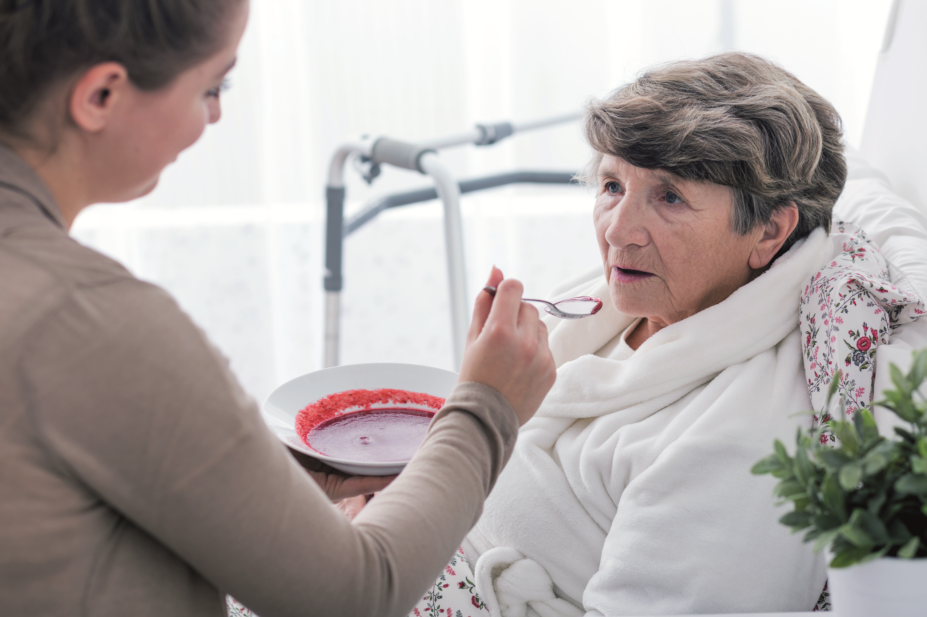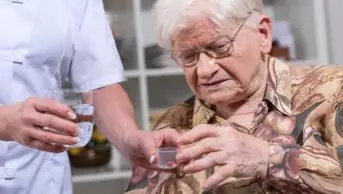
Shutterstock
Medication errors affect 16–27% of nursing home residents, researchers have found, but the proportion of cases resulting in serious harm including death is “surprisingly low”. However, the data suggest that serious harm incidents are probably either underreported or incidents go undetected, the researchers say.
Reporting their findings in the Journal of the American Geriatrics Society
[1]
(online, 21 November 2016), the team says: “Although older individuals in nursing homes are often exposed to medicine errors and are vulnerable to harm, the reported levels of permanent disability and death are low, albeit probably underreported or undetected.”
“More research is required to determine whether the effect of medicine errors is truly low and to better understand factors that contribute to medicine errors to assist in designing safer systems.”
The authors performed a systematic review of 11 studies published between 2000 and 2015 into the prevalence of medication errors in nursing homes that led to hospitalisation or death. Most of the residents involved in the studies were female, aged over 75 years and around half were diagnosed with dementia or cognitive impairment and had a significant number had comorbidities. The number of residents involved in the studies were large – ranging from 20,820 to 251,305 residents, except for one study, which included a population of 87.
Five studies considered all medication errors, five looked at errors that occurred when residents were transferred from one setting to another, and one study addressed residents given potentially inappropriate medicines.
The team found that medication errors accounted for 16–27% of residents; transfer-related errors occurred in between 13–31% of cases; and 75% of residents had been prescribed a potentially inappropriate medicine.
The data also show that medication errors resulting in mild effects ranged from 42–60%; those that resulted in a moderate effect ranged from 3–36%, and those resulting in a severe effect ranged from 0–1%. Death was rare.
Overall, the most frequent medication error was wrong dosage, which was also most likely to cause harm. This could be attributed to “age-related” change in pharmacokinetics – the way the body metabolises and eliminates drugs from the body – and the associated dynamics, the research team suggest.
The data also show that errors occurring at transfer of care were more frequently caused by drug omissions resulting from inaccuracies in medication histories; errors in transcription; unavailability in pharmacy, and repeat errors.
Lead researcher Joseph Ibrahim, a consultant physician at the department of forensic medicine at Monash University in Melbourne, Australia, says that the data show fewer serious harms (including death) than expected because of a “lack of recognition”.
He explains: “How the impact of the medication error shows itself in an older person may be unusual and so is not recognised and older people with dementia are also less able to explain what [is happening to them] or to notify staff if an error has occurred.”
He adds: “I am convinced there are more errors [than our study shows] and there is underreporting of serious adverse events. This is due to how we gather the information and our understanding of how an error does or does not contribute to death.”
He says that there needed to be a more sophisticated recording system which logs the “degree” that a medication error contributes to a death and that nursing home staff should feel able to report errors without fear of blame.
There is also a need for better co-operation between doctors, nurses and pharmacists with a focus on team-based medicines reviews, he says.
“There is a very important role for pharmacists who are needed to help lead some of these changes and to provide their expertise.”
David Alldred, associate professor of pharmacy practice at the University of Leeds, who managed the Care Homes’ Use of Medicines study (CHUMS), which was funded by the Department of Health and published 2009, says he accepts that older people in nursing homes are “less resilient” to medication errors and adverse drug events than younger healthier populations so are more likely to suffer harm.
“It is very challenging to identify adverse drug events and attribute causation to outcomes, such as hospitalisation and death, particularly in a multi-morbid population who have a short life expectancy and receive multiple medicines,” he says.
Also, because the research was based mostly on nursing homes in the United States (which have different systems to the UK) and the studies used different methods, definitions and types of medication reviews, Alldred says that “caution” was needed when comparing findings.
“Around half of the studies used incident reporting which provides a significant underestimate of the frequency of medication errors.”
He adds that a blame culture can contribute to underreporting of medication errors that may go unrecognised and says nursing homes should work with pharmacists to improve their systems of detecting reporting medication errors.
“There needs to be a learning culture in place, so that when errors are reported they can be discussed and solutions found to prevent them. The causes of medication errors are… multifaceted and… the wider pharmacy team can work with residents, staff and primary and community care teams to improve medicines safety.”
References
[1] Ferrah N, Lovell JJ & Ibrahim JE. A systematic review of the prevalence of medication errors resulting in hospitalization and death of nursing home residents. Journal of the American Geriatrics Society. 21 November 2016. doi: 10.1111/jgs.14683


